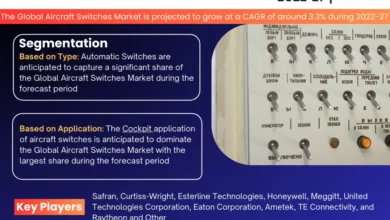
In the dynamic and competitive realm of sales, the ability to close deals is a hallmark of success. Sales closers who consistently close deals possess a unique set of skills, strategies, and mindset that set them apart. In this article, we delve into the strategies that propel sales professionals to become closers, examining the key elements that contribute to their effectiveness in sealing the deal.
Building Genuine Relationships
Establishing Rapport:
Successful closers understand the power of genuine relationships in the sales process. Building rapport with clients goes beyond the transactional aspects of a deal. It involves actively listening to clients, understanding their needs, and forging a connection based on trust. Sales professionals who prioritize relationship-building create an environment where clients feel valued, heard, and understood. This foundation of trust lays the groundwork for successful deal closures.
Tailoring Approaches:
Closers tailor their approaches based on the unique characteristics and preferences of each client. Recognizing that one size does not fit all, they adapt their communication style, pitch, and solutions to align with the client’s specific needs and motivations. This personalized approach not only demonstrates a genuine commitment to the client’s success but also increases the likelihood of closing the deal by presenting a solution that resonates on a personal level.
Effective Communication Skills
Active Listening:
Closers excel in the art of active listening. They go beyond hearing words to truly understanding the underlying concerns, motivations, and objections of the client. Active listening allows closers to address client needs more precisely and position their product or service as the ideal solution. By demonstrating a genuine interest in the client’s perspective, closers build trust and create a positive impression, paving the way for successful deal closures.
Clarity and Confidence:
Clear and confident communication is a hallmark of successful closers. They articulate the value proposition of their product or service with clarity, avoiding jargon and ensuring that clients comprehend the benefits. Confidence instills trust in the client, assuring them that the proposed solution is not only viable but also the best choice. Closers strike a balance between being assertive and respectful, guiding the conversation with authority while remaining open to client input.
Strategic Follow-Up Techniques
Timely and Persistent:
Closing a deal often involves strategic follow-up techniques. Successful closers understand the importance of timely and persistent follow-up without being overly aggressive. They strike a balance, ensuring that clients are engaged and informed without feeling pressured. Timely follow-up addresses any lingering concerns, provides additional information as needed, and reinforces the value of the proposed solution.
Leveraging Technology:
Closers leverage technology to enhance their follow-up strategies. Customer Relationship Management (CRM) tools, automated email sequences, and personalized content play a pivotal role in maintaining client engagement. These tools allow closers to stay organized, track client interactions, and provide valuable insights that inform follow-up strategies. Technology-driven follow-up ensures that closers remain top-of-mind and position themselves as reliable partners throughout the decision-making process.
Mastering the Art of Objection Handling
Anticipating and Addressing Objections:
Objections are a natural part of the sales process, and closers are adept at anticipating and addressing them proactively. Instead of viewing objections as roadblocks, successful closers see them as opportunities to provide additional information, clarify misconceptions, or adjust their approach. By mastering the art of objection handling, closers navigate potential barriers with finesse, demonstrating expertise and commitment to finding solutions.
Turning Objections into Opportunities:
Closers leverage objections as opportunities to further showcase the value of their offering. Rather than avoiding or dismissing objections, they use them as stepping stones to deepen the client’s understanding and address concerns effectively. This strategic approach not only overcomes objections but also strengthens the client’s confidence in the proposed solution, ultimately leading to successful deal closures.
Persistent Focus on Results
Goal-Oriented Mindset:
Successful closers maintain a persistent focus on results. They set clear goals, whether in terms of deal closures, revenue targets, or client satisfaction, and work systematically to achieve them. This goal-oriented mindset provides direction, motivation, and a framework for measuring success. Closers understand that each interaction contributes to the overarching goal of closing deals, and they align their efforts accordingly.
Continuous Improvement:
Closers are committed to continuous improvement. They analyze their performance, seek feedback, and adapt their strategies based on lessons learned from both successes and challenges. This commitment to ongoing development ensures that closers remain agile in a dynamic sales landscape, staying ahead of industry trends, refining their techniques, and consistently achieving successful deal closures.
Conclusion
Becoming a closer in the world of sales involves a combination of interpersonal skills, effective communication, strategic follow-up, objection handling, and a relentless focus on results. Successful closers understand the intricacies of relationship-building, communicate with clarity and confidence, employ strategic follow-up techniques, master objection handling, and maintain a persistent focus on achieving their goals. By adopting these strategies, sales professionals can propel themselves to become closers, consistently sealing deals and driving success in their sales endeavors.


